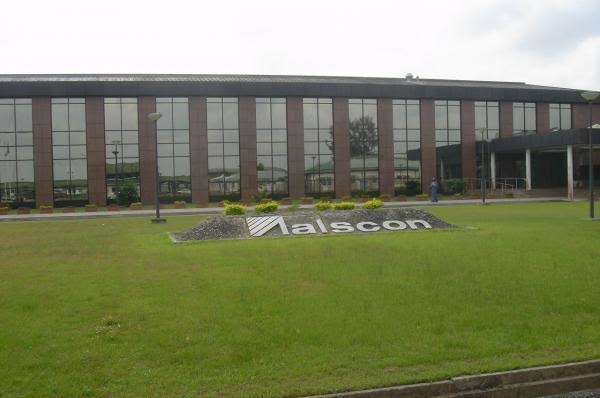Everyone that has been following proceedings in the public space with special regard to the privatization of the Aluminum Smelter Company of Nigeria (ALSCON) would agree that the legal squabbles over the soul of the moribund national asset ought to have been long put off for the sake of national interest, economic growth, reduction in the prices of iron and steel and job creation.
In the intricate landscape of the ALSCON ownership dispute, the Bureau of Public Enterprises (BPE) which represents the Federal Government and indeed all Nigerians has emerged as a steadfast guardian of transparency, justice, and Nigeria’s economic interests. But those who are hell bent on making sure the company does not live up to its potentials would rather victimize, vilify and blackmail BPE and its managers for personal gains. The question is for where is our patriotism? What is the gain for holding a supposed viable company down for about 20 years while the nation suffers?
The ongoing saga, marked by legal battles and financial complexities, unfolds a tale where BPE strives to navigate the turbulent waters with resilience and commitment to the rule of law, while others consistently play the devil’s advocate, denying Nigerians their due benefits.
ALSCON’s Genesis and Privatization
ALSCON, birthed with a $3.2 billion investment by the Federal Government, was commissioned in 1997 to harness Nigeria’s vast gas reserves and curb environmental hazards like gas flaring. The privatization journey began in 2004, leading to the emergence of two prequalified bidders, BFI Group (BFIG) and UC RUSAL (Dayson). BFIG, initially the Preferred Bidder, faced challenges meeting financial obligations, paving the way for a new strategy: the Willing Seller/Willing Buyer approach.
The National Council on Privatisation (NCP) set up an Ad-Hoc Committee with the then Minister of Power and Steel, Senator Liyel Imoke as Chairman and the then Chairman of the Technical Committee of the NCP, Mr. Akin Kekere-Ekun and the then Director General of BPE, Dr Julius Bala as members of the Committee to negotiate with Dayson on a willing seller/willing buyer basis.
Under the leadership of the NCP, negotiations ensued, resulting in the execution of a Share Sale and Purchase Agreement (SSPA) between BPE and UC RUSAL/Dayson in February 2006. The agreement included provisions for the dredging of the Imo River, a critical aspect for import and export facilitation.
Following the conclusion of negotiations, BPE and UC RUSAL executed a Share Sale and Purchase Agreement (SSPA) on 3rd February 2006 (Annexure 1) in respect of the acquisition of ALSCON by Dayson for the purchase consideration of $250 Million.
The issue of dredging the Imo River which serves as a conduit for importation of raw material and finished products, had been undertaken by the Federal Government.
When UC RUSAL/Dayson raised the issue of dredging, the BPE had obtained offers from various companies for dredging the Imo River between the range of $140 Million and $500 Million. UC RUSAL/Dayson offered to dredge the Imo River for the sum of US$120 Million.
Consequently, the BPE and UC RUSAL/Dayson signed an addendum to the SPA (Addendum No.1) on 14th November 2006 (Annexure 2) whereby it was agreed that the dredging would be undertaken by UC RUSAL/Dayson and the cost of this ($120 Million) was to be offset from the bid sum of $250 Million, thus UC RUSAL/Dayson only paid $130 Million for ALSCON.
The facility was handed over to UC RUSAL on 27th February 2007.
RELATED NEWS
Court Intervention
The process faced legal hurdles as BFIG contested its termination, leading to a prolonged legal battle. Aggrieved by BPE’s decision to terminate the transaction, BFIG instituted an action at the Federal High Court (FHC/ABJ/CS/583/04) based on its claim that the period for the payment of the initial 10% of the purchase price had not expired before the revocation of the offer. BFIG thus sought: an order of the court to compel BPE to execute the SPA with BFIG, and an order of perpetual injunction restraining BPE from negotiating the sale of ALSCON with any other entity. BFIG’s claim was denied by both the Federal High Court and the Court of Appeal.
In 2012, Supreme Court ordered BPE to execute the mutually agreed Share Purchase Agreement (SPA) with BFIG, emphasizing adherence to specific timelines and financial obligations. Among other decisions, the Court also asked BFIG to pay 10% of the bid price of US$410 million within 15 days of signing the SPA and the balance to be paid within 90 days. BPE complied, yet the transaction faced setbacks due to BFIG’s attempts to renegotiate terms.
At the expiration of the period stipulated for the execution of the agreement and after due notice to BFIG, BPE terminated the transaction for non-compliance on the part of BFIG with the terms of the Supreme Court Judgement.
Arbitration
Following the Supreme Court judgment that voided their purchase of ALSCON, UC RUSAL/Dayson instituted arbitration proceedings at the London Court of International Arbitration (LCIA) over the legal ownership of ALSCON, given that it had executed an SSPA with BPE and paid the purchase price (Arbitration No.1). Since BFIG failed to pay the US$41m as required by the Supreme Court judgment, BPE and UC RUSAL agreed to a settlement which was entered as a consent award at the LCIA.
Arbitration at the London Court of International Arbitration (LCIA) became a battleground, ultimately resulting in a consent award that confirmed BPE’s compliance with the Supreme Court judgment. Additional arbitrations ensued, including a settlement through Addendum No. 2, solidifying BPE’s commitment to resolving disputes amicably.
Economic Cost
n the face of global economic fluctuations and gas supply challenges, ALSCON’s operational revival becomes paramount. The Federal Executive Council’s approval in 2021 to recognize the aluminum industry as strategically important demonstrated the government’s commitment to the sector’s viability. However, the implementation faced hurdles with the passage of the Petroleum Industry Act, leading to engagements with regulatory bodies to secure concessionary gas rates.
Despite the government’s efforts to facilitate a concessionary rate for ALSCON, UC RUSAL/ALSCON’s rejection of the proposed rate raised concerns about the plant’s operational intentions.
The economic impact of ALSCON’s dormant state is substantial. The plant’s potential to contribute to Nigeria’s GDP, create jobs, and enhance the aluminium industry remains untapped. The resumption of operations at ALSCON is not only crucial for economic growth but also for the broader development of the region and the nation. Since the company was handed over to the RUSAL, not a single production activity has been done. The federal government and indeed all Nigerians must be worried by the fact that over 17 years after privatization of ALSCON, Nigeria still spends scarce dollar on importation of aluminum products. ALSCON had an annual production capacity of 193,000 tons at inception. The situation has even been worse since it was handed over to UC RUSAL. It is even more suspicious that tens of people always in dark eyeglass shades and black suits litter the place with no single production work done since the handing over of the company to the firm. That is why the government must wake-up and act now! Government should investigate the operation of ALSCON and deal with the issues that continue to impede its operation.
GAS INCENTIVE
As part of measures designed to re-commence operations at the Plant, the National Council on Privatisation in August 2020 approved the proposal for the payment of ALSCON’s legacy debt to SPDC arising from the unpaid subsidy by the Federal Government.
The approval was conveyed to the Minister of Finance, Budget, and National Planning for implementation in August 2020.
The Ministry of Finance considered the NCP’s approval and forwarded it to the Budget Office of the Federation for their action. The Budget Office requested ALSCON’s management to submit a business plan for its operations through the BPE and this was done.
UC RUSAL has so far insisted that operating the plant above the concessionary gas
rate awarded to them at privatisation is not commercially viable. Towards this end, through the efforts of the Bureau and the then Minister of Mines & Steel Development, in February 2021, FEC approved the aluminium industry as a strategic industry and thus eligible to purchase gas at a concessionary rate.
However, implementing the FEC approval was complicated by the passage of the Petroleum Industry Act (PIA). To ensure the implementation of the concessionary rate approved by the FEC, the Bureau engaged Nigerian Midstream Downstream Petroleum Regulatory Agency (NMDPRA) to grant ALSCON the required concession even though it is not a gas-based industry (GBI) but was classified as strategic due to the economic value the nation stands to benefit from its operations.
Unveiling Frauds and Ensuring Accountability
Thank goodness that BPE’s vigilance extended beyond legal battles, uncovering alleged fraudulent activities involving a fake SWIFT transfer of 100 million Euros by BFIG. Specifically, in August 2020, CBN wrote the Bureau with regards to an application for a Certificate of Capital Importation requested by the counsel to BFIG for 100 million euros. The Bureau replied that it had no transaction with BFIG.
The report on the fraudulent SWIFT Transfer shows the extent to which some persons will go just to own the asset. It is therefore important for the anti-graft agencies to make public their findings of this fraudulent claim of transferring 100 million Euros (through Deutsche Bank with Code ACKS 0298 – 2020). The payment report of the 100 million Euros to the Central Bank of Nigeria that was reportedly released by one of the anti-graft agencies shows the real situation behind the alleged payment and some of the fraudulent activities around ALSCON.
The Federal Government has to investigate the matter and dully punish anyone who runs foul of the law. Such a big issue should not be swept under the carpet. ALSCON must be made to work.
Government should find out whether the investor has produced any significant quantity of Aluminium or made a difference in the Nigeria Aluminium and labour market. If they are not producing anything, then why hold on to such an asset? It may not be wrong to say RUSAL has failed, since taking over ALSCON in 2007 (17 years ago), to operate the plant due to several reasons including lack of adequate investments and cessation of gas supply due to accrued debts.
Commencement of Contempt Proceedings
Dissatisfied that the “annexures” were not attached to the SPA, BFIG, on 10th April 2019, filed contempt proceedings before the Federal High Court, Abuja, against the Bureau and the Director General (DG) of the Bureau, alleging non-compliance with the orders of the Supreme Court. The Federal High Court ordered that the DG be committed for 30 days.
Challenges escalated as BFIG initiated contempt proceedings against BPE, alleging non-compliance with Supreme Court orders when it was the firm who actually failed to come to equity with clean hands. The legal intricacies revolved around the inclusion of alleged “annexures” to the SPA, a matter that the Supreme Court, in 2019, found BPE guilty of. However, the Bureau’s defense rested on the absence of agreed-upon annexures and its commitment to the mutually agreed SPA.
It is worth mentioning that the non-compliance was premised on making available some of the documents that were not even in existence as of 2004, the year that the mutually agreed SPA was signed, the only document agreed by both parties as an annexure to the SPA was specifically referred to as ‘Schedule A’ in the mutually agreed SPA (Clause 9.5) which is BFIG’s Strategic Business Plan. The clause 15.0 of the mutually agreed SPA provides that: The Agreement sets forth the entire understanding between the parties concerning the subject matter hereof, and no modification, amendment, waiver, or discharge of this Agreement or any provision thereof shall be binding on either party unless confirmed by a written instrument signed by two officers of the BPE and the purchaser.
Further to the preceding, the Bureau’s position was that all other documents described by BFIG as “ANNEXURES” were neither agreed on by the parties, nor reflected in the SPA, nor referred to by the appellate courts, and were thus extraneous to the mutually agreed SPA.
The Bureau appealed this order; however, the Court of Appeal upheld the Trial Court’s decision. Hence, the Bureau appealed to the Supreme Court.
In a unanimous judgment of the Supreme Court delivered by Justice Tijjani Abubakar, the Court held that the Appellants were in express breach of its relief 3 of the 2012 judgment, which reads: An order of Perpetual Injunction restraining the Defendant/Respondent, its servants, agent; privies, the management, or howsoever called from inviting any further bidding for the sale and acquisition of ALSCON in violation of the contract between the Plaintiff/Appellant and Defendant/Respondent and from negotiating to sell, selling, transferring or otherwise handing over the Aluminium Smelter Company of Nigeria ALSCON to any person or persons violating the contract between the Plaintiff/Appellant and the Defendant/Respondent.
The apex Court further held that the 1st Appellant expressly flouted the above order when the 1st Appellants and its agents started negotiating with Dayson. According to the Court, the Appellants, vide their affidavit in response to the contempt proceedings at the Federal High Court, only made a blanket denial of the allegations of Contempt but woefully failed to provide the required specifics. The Court described the Appellants’ conduct as an abuse of governmental powers, and a government agency should not be found wanting in that manner. The Court held further that the actions were against the nation’s economic progress. The issue of contempt was thus resolved in favour of the Respondent.
Consequently, the Court held that the Appeal failed, and the judgment of the Court of Appeal was affirmed. A cost of N10m was awarded against the Appellants, which is to be paid personally by the 2nd Appellant. The One-month prison sentence of the 2nd Appellant was also affirmed.
BPE’s Unyielding Commitment to National Interest
Whereas the decision has been taken by the Honourable Court, it is clear to those of us observing from distance that as ALSCON’s ownership dispute unfolds, BPE stands as a symbol of resilience, navigating complex legal landscapes and economic challenges. The Bureau’s commitment to upholding the rule of law, transparency, and national interests echoes a narrative of unwavering dedication in the face of adversity. In the evolving saga, BPE remains a beacon of hope for a fair and just resolution, ensuring that the Aluminum Smelter Company of Nigeria’s future aligns with the principles of justice, transparency, and economic prosperity.
It should also be said here that BPE’s former DG, Alex Okoh who is now seen as a sacrificial lamb (in this case) only complied with the directives of the National Council on Privatisation in carrying out his duties and ought not to have been committed to prison for defending the interest of the Federal Government.
Signed: Concerned Nigerians for economic emancipation





